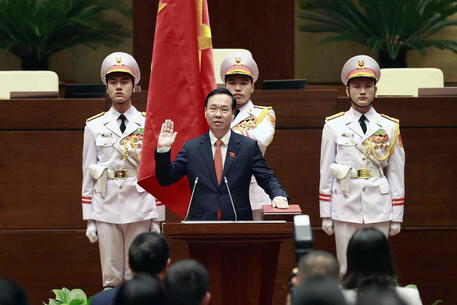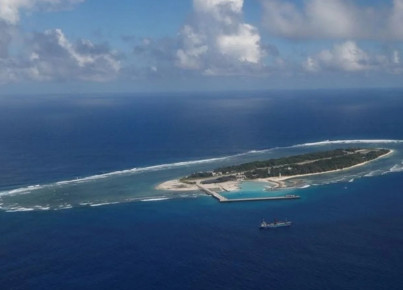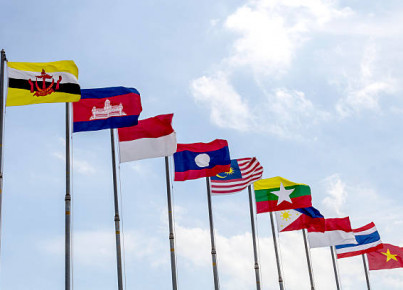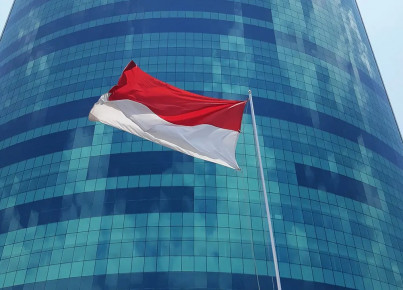Close to Secretary Trong and the youngest member of the Politburo, his political parable is part of the broader political reshuffle of recent times
"I am flesh and blood with my people / the same sweat, the same drop of boiling blood." It is by quoting the most famous Vietnamese poet of the 20th century that Vo Van Thuong officially took office as president of the Socialist Republic of Vietnam on March 2, 2023. After the unexpected resignation of Nguyen Xuan Phuc (the first in the history of the Socialist Republic) last Jan. 17, the political elite seems ready to leave behind a period of scandals and arrests.
Before Phuc, also in January, the two deputy ministers Pham Binh Minh and Vu Duc Dam also handed in their resignations. Throughout the course of 2022, the Vietnamese Communist Party's (VPC) anti-corruption campaign was intertwined with the scandal of bribes for reparations during the pandemic and that of the scam around testing for Covid-19. Signaling the need to clean up the image of the political leadership also falls under the timeliness of electing a new president without waiting for the National Assembly in May. The new president is named Vo Van Thuong and his election was approved by a vote of 98.8 percent.
Who is Vo Van Thuong
Vo Van Thuong is a native of the southern province of Vinh Long. He was born in 1970 and is the youngest member of the current Politburo. It is no coincidence that the CPV and the National Assembly chose a South Vietnamese to serve as president. Traditionally, the "four pillars" of Vietnamese politics-that is, the PCV general secretary, head of state, prime minister, and chairman of the National Assembly-equally represent the country's two poles. As of 2021, however, no Vietnamese had yet assumed one of the four main offices. In Thuong's case, however, it is important to remember that his family had moved to North Vietnam and remained there until the end of the war.
Unlike his predecessor, who majored in economics, Thuong majored in Marxist-Leninist philosophy at Ho Chi Minh University. But like Phuc, he soon climbed the Party ranks after years of active militancy in the world of youth associationism revolving around the CPV. He joined the Party in 1993, at age 23, and was elected to the Politburo during the 12th Congress in 2016. Analysts identify him as a loyalist of current Secretary Nguyen Phu Trong, who entrusted him with the PVC Executive Secretariat at the 13th Congress. With this track record Thuong had long been considered one of Trong's possible heirs, and today he is confirmed as a reassuring choice in troubled times. Not only that, the Vietnamese economy is experiencing one of the most prosperous periods in recent years, and confidence is no longer just a matter of domestic politics.
What Thuong's election means for the Vietnamese economy
Today, Vietnam is one of the most promising countries economically: GDP growth exceeded 8 percent during 2022, and the International Monetary Fund (IMF) sees the continuation of this upward parabola with a balance +6.2 percent for 2023 (compared to the data from the National Institute of Statistics-quoted above-the IMF had estimated 2022 growth at +7 percent). Following Trong's reappointment to the Party leadership, moreover, what the leadership interprets as signs of stability to citizens and foreign investors seem to be consolidated.
Consistent with what appears to be a purely political course set in motion with the 13th Congress (2021), in his inaugural speech Thuong preferred to give space to fighting corruption and building "a clean [from corruption, ed.] and strong state apparatus." He went on to mention domestic development goals such as reaching middle income by 2030 and crowning the construction of a high-income socialist country by the centennial of the republic's founding, 2045.
Vietnam's bureaucratic moloch remains an obstacle to innovation but, analysts point out, recent upheavals even at the highest echelons of Hanoi's political elite could positively affect the country's economic attractiveness. As Le Hong Hiep, senior fellow at ISEAS - Yusof Ishak Institute, points out, the sudden handover in the past two years would be interpreted as an acceleration in the country's political transition. Trong's third (exceptional) term would, therefore, be instrumental in building a solid and reassuring lineage. Although the competence of the chosen officials is still to be tested.
A period of opportunity is opening up for Vietnam, supported by pushes from within and outside Hanoi: the shift of global value chains away from China, government incentives in high-tech development, and openness to investment in building a resilient energy apparatus. But the Party will need to balance investor enthusiasm with the country's structural problems, from infrastructure to bureaucracy. To do this, one man (or rather, four men) will not be enough to lead the nation. In the meantime, the presidency may just be an initial launching pad for Thuong, who-as a statement released by a Hanoi diplomat to the Reuters news agency claims-could then become Trong's successor to the Party leadership and thus move up to the top role in the political hierarchy.






